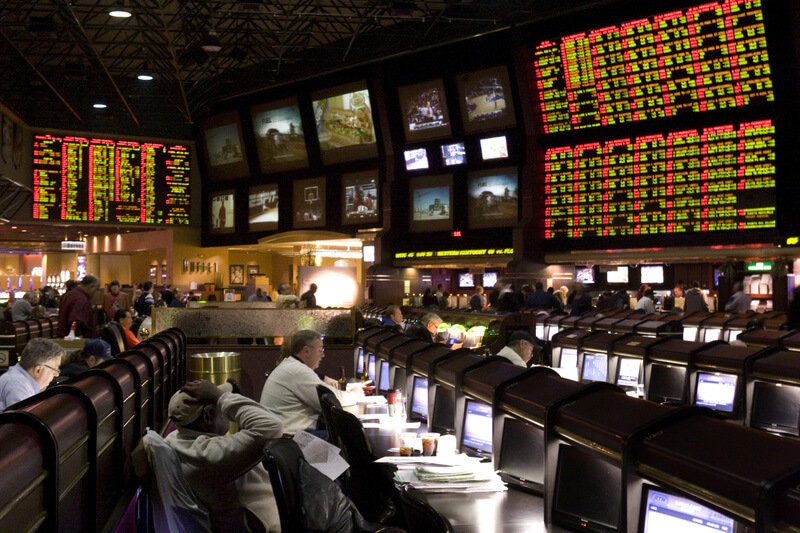Sports betting in the United States used to be banned around the country, but that everything changed in 2018. May 14, 2018, was the date when Supreme Court struck down PASPA. The Professional and Amateur Sports Protection (PASPA) act of 1992 kept sports betting banned on the federal level.
As a result, this gambling activity isn’t considered illegal in the eyes of federal law. However, each state has the right to decide the legality of betting and other forms of gambling on its own. You can read about the gambling laws of each US state at MobileCasinoParty!
The Road to Sports Betting Legalization
If you’re one of the rising number of Americans who support gambling, the 2018 Supreme Court case should make you pay attention.
In 1993, only 44 percent of US citizens approved of sports betting. Now, however, a 55 percent majority fueling the way to change professional sports betting laws in the coming year.
This dramatic shift in public opinion has recently come to a head in New Jersey, where outgoing Governor Chris Christie is leading efforts to challenge a decades-old law that prohibits states from allowing individuals to wager on sports events.
Known as the Professional and Amateur Sports Protection Act (PASPA), this 1992 statute essentially outlaws sports gambling at the national level although it contains specific exceptions for the state of Nevada and several others that had pro-sports betting legislation on the books prior to the Act’s passage.
The Supreme Court began hearing oral arguments in Christie v. NCAA on Monday, December 4. In asking the Court to overturn lower court rulings and legalize sports betting in New Jersey, this case will concurrently investigate the constitutionality of PASPA within the context of the current political climate.
The case came to the Supreme Court after the passage of a 2012 state bill that authorized sports gambling in New Jersey. This bill passed with widespread voter support. The NCAA and all four major professional sports leagues in the United States (the NBA, NFL, NHL and MLB) did try to put a stop to the bill. However, this effort was thwarted in the New Jersey court system.
After the failure of a subsequent effort to repeal laws prohibiting sports gambling in New Jersey casinos and racetracks, the matter ultimately earned a place on the docket of the most powerful court in the land.
32 States Expected to Launch Sports Betting Operations
To borrow a phrase from the gaming world, the stakes in this battle are high. With the Supreme Court striking down the PASPA, there’s been a discussion about the future of gambling in the US. A reputable California research firm estimates that as many as 32 states would begin to offer sports betting over the next five years. The undisputed facts seem to back these findings securely.
At present, 20 different states have lent their support to New Jersey in its pro-sport gambling effort. Furthermore, 12 different states introduced legislation to legalize betting in case New Jersey wins its appeal.
The amicus brief in support of New Jersey argues that federal tradition does not support the actions of the national government that prevents individual states from passing a law “that neither violates the Constitution nor addresses any matter pre-empted by federal law.”
In other words, if Congress truly wants to prohibit sports gambling, why not pass a law that does so directly? Instead, Congress has simply infringed upon the rights of states, stopping them from changing their own gambling laws. Effectively, Congress was commandeering state resources to impose a policy with which many of these states disagree.
Early evidence indicates that the Supreme Court may just overturn key provisions of the PASPA. During the course of oral arguments, Justice Anthony Kennedy decried the fact that “citizens of the state of New Jersey are bound to obey a law that the state doesn’t want but that the federal government compels the state to have.”
Justice Stephen Breyer echoed this sentiment, suggesting that Congress was “telling states what to do” without proper authority and jurisdiction.
What Do Professional Sports Organizations Think?
Input from the world of professional and college sports has been mixed. Officially, the NCAA and all major US professional sports leagues have released statements claiming that New Jersey’s gambling expansion would damage the integrity of their games. In private, however, the vast majority of sports industry leaders have shown openness to the legalization of betting.
As the major sports continue to recalibrate their thinking on this subject, they cite the fact that a fully regulated sports gambling industry would make it easier for them to detect suspicious bet surging that might indicate rigged competition. Plus, in crass commercial terms, they know that sports betting is great for business. Evidence shows that fans are far more likely to watch the games if they have a few dollars at stake.
Despite the early comments from justices Kennedy and Breyer, the future of betting in the US remains difficult to predict. Justices Elena Kagan and Justice Sonia Sotomayor, for example, view Congress’ support of the PASPA as entirely permissible.
Those looking for a definitive answer to the question of legalized sports gambling in the US will have to wait. Betting is legal on the federal level at the momen. However, states need to pass their own laws to make it legal within their borders. It’s fair to say that the process hasn’t been going super-fast. Still, who knows what the future may hold.







